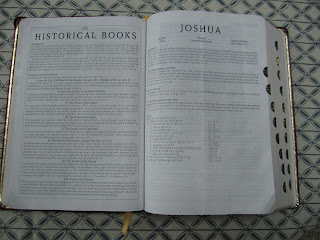Posted by Lisa Laree to Beer Lahai Roi
The 'Cities of Refuge' are an interesting study in judicial process. There were no Miranda rights, not even a true police force to bring criminals to justice. It was up to the tribes to police their own people. There were penalties laid out in The Law for various crimes...both intentional and unintentional. Chief among them was causing the death of another person.
There was a designated 'Avenger of Blood' if someone died as the result of the actions of another person. Usually a near kinsman, the Avenger of Blood was to fulfill the 'life for a life' penalty; that is, the death penalty for murder. But not all killing is murder, and there had to be some provision for accidents. So the Cities of Refuge were designated; six cities that one who had caused a death could go to for protection while the event was investigated to determine if he was guilty of murder or unintentional manslaughter.
When he flees to one of these cities, he is to stand in the entrance of the city gate and state his case before the elders of that city. Then they are to admit him into their city and give him a place to live with them. If the avenger of blood pursues him, they must not surrender the one accused, because he killed his neighbor unintentionally and without malice aforethought. He is to stay in that city until he has stood trial before the assembly and until the death of the high priest who is serving at that time. Then he may go back to his own home in the town from which he fled. -- 20:4 - 6.
This hearkens back to Numbers 35: 6 - 34. If the accused person was found to be guilty of murder, he was to be handed over to the avenger of blood to execute. If he was found innocent of murder, but guilty of manslaughter, he could live, but only within the confines of the city to which he had fled. If he ever went outside the city limits, the avenger of blood could strike him down without penalty. Assuming, of course, that the avenger of blood was hanging around the city waiting to catch the accused wandering about. When the current high priest had died, the sentence was lifted and the accused could return to his home without fear; it would now be illegal for the avenger to kill him.
There were six such cities, spread across the whole nation, six on the west side of the Jordan and six on the east side: Kedesh, in Galilee, in the hill country of Naphtali, Shechem in the hill country of Ephraim, Hebron (AKA Kirath Arba) in the hill country of Judah on the west and, on the east, Bezer in the desert plateau of Reuben, Ramoth Gilead in the land of Gad and Golan Bashan in the land of Manasseh.
Complicated in some ways, simple in others. Life was
valuable to the Israelites and taking of life...even accidentally...had
consequences. The law applied equally to Israelites and aliens living among them. Anyone who accidentally caused the death of another could go...flee, the NIV reports...to these cities and be protected from vengeance until the assembly could hear the case.
But...the individual had to go immediately. As fast as they could go, carrying only necessities. No family, nothing that would slow the person down from getting to the safe place. It was urgent, a matter of life and death; sure safety could only be found in one of those cities.
So, how fast am I to run to my City of Refuge when the accuser is pursuing? How difficult is it to leave behind everything that would hinder my approach to the One who will give me safe haven? What trappings of my comfort zone am I trying to drag along with me...which slows my progress and leaves me vulnerable?

No comments:
Post a Comment